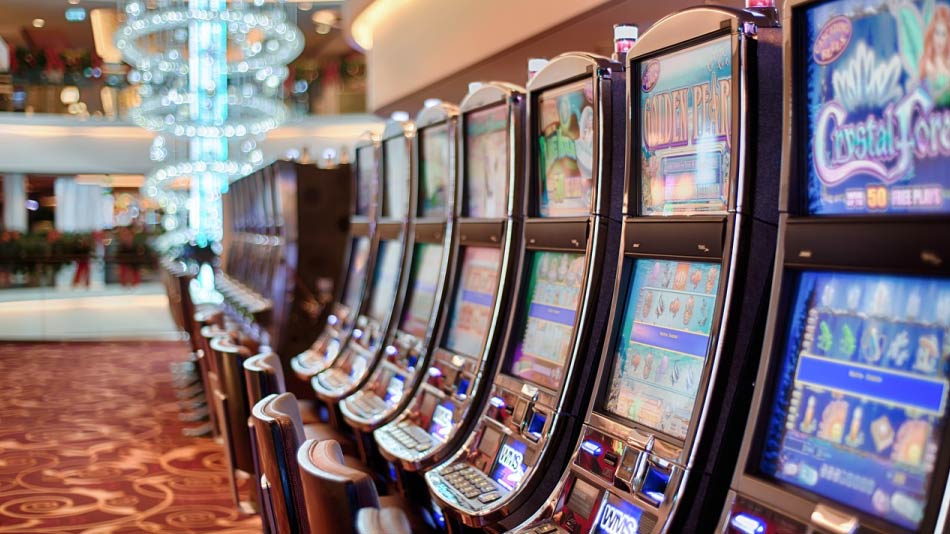In today’s digital era, TikTok has emerged as a global powerhouse, captivating millions with its short, engaging videos. However, beneath the surface of entertainment and creativity, a concerning trend has emerged: the rise of gambling activities. This alarming shift has prompted governments worldwide to take action, leading to a series of bans and regulatory measures aimed at curbing the phenomenon. This article explores the allure of TikTok as a gambling venue, the governmental response, and the broader social implications of this trend.
The Allure of TikTok as a Gambling Venue

TikTok’s interactive ecosystem has proven to be a fertile ground for gambling activities. The platform’s algorithms, known for their ability to push content that garners engagement, have inadvertently fueled the spread of gambling-related content. Users are often drawn into gambling through seemingly harmless videos, only to find themselves in a web of betting games and challenges. This seamless transition from entertainment to gambling platforms has raised serious concerns about user safety and the potential for addiction.
The Transformation of Entertainment to Gambling Platforms
Case studies reveal how quickly and effortlessly entertainment platforms like TikTok can transform into hubs for gambling. Through interactive challenges and the promise of easy money, users are enticed into participating in gambling activities, blurring the line between harmless fun and risky behavior.
Governmental Interventions on Online Gambling
As the trend of gambling on TikTok gained momentum, governments across the globe stepped in with bans and regulations. The global perspective on TikTok gambling bans showcases a range of responses, from strict prohibitions to more nuanced regulatory frameworks. In Nepal, for example, the government’s stand against TikTok gambling highlights the challenges and complexities of regulating other digital platforms and online casinos like MCW.
The Rise of Government Bans
Nepal’s response to TikTok gambling is just one of many examples of countries grappling with the issue. The bans reflect the seriousness with which governments are taking the problem and underscore the difficulties in enforcing regulations on digital platforms that operate beyond traditional borders.
Legal Frameworks & Policies in Nepal


The effectiveness of current regulations in Nepal to combat online gambling, particularly on platforms like TikTok, is a nuanced subject that demands a closer examination. Nepal’s legal frameworks and policies surrounding online gambling are at a critical juncture, reflecting both the nation’s commitment to cultural values and the challenges posed by technological advancements.
Nepal’s stance on gambling is primarily governed by the Public Gambling Act of 1972, which prohibits gambling activities. However, this legislation predates the Internet era and does not explicitly address the complexities of online gambling platforms like MCW. The ambiguity surrounding online gambling has created a regulatory vacuum, allowing platforms like TikTok to become unintended arenas for such activities.
Recognizing the urgent need to address this oversight, the Government of Nepal has begun to take steps towards updating its legal frameworks. The most notable effort was the introduction of the Information Technology Bill, which aimed to regulate digital platforms and included provisions for online content. While the bill is still under review, it signals a clear intent to tighten control over online gambling activities, aligning with global trends toward stricter internet governance.
The effectiveness of Nepal’s updated policies will depend on several factors:
- Clarity and Scope: Clear definitions of online gambling within the law will be crucial. This includes distinguishing between casual gaming and gambling activities, which is often blurred on social media platforms like TikTok.
- Enforcement Mechanisms: The challenge of enforcing online gambling bans lies in the digital nature of the activities. Effective enforcement will require coordination between legal authorities, internet service providers, and platforms like TikTok.
- Public Awareness and Education: Equally important is the role of public education in reducing the demand for online gambling. Awareness campaigns can inform citizens about the legal and psychological risks associated with gambling.
- Collaboration with Tech Companies: Engaging with technology companies and platforms is essential for monitoring and controlling gambling content. This includes developing technologies and protocols to identify and block gambling-related activities.
- Support Services: For those affected by online gambling, access to support services and rehabilitation programs is key. This holistic approach ensures that the legal framework is complemented by measures to address the social impact of gambling.
The Social Impact of Gambling on TikTok
The psychological effect of gambling on TikTok users cannot be overstated. For many, what starts as casual entertainment can quickly spiral into addiction, with significant implications for their financial health and overall well-being.
Public and Private Sector Responses
In response to the rise of gambling on TikTok, both the public and private sectors have taken steps to address the issue. Tech companies, including TikTok itself, have introduced measures to detect and remove gambling-related content. Meanwhile, community organizations and NGOs have launched initiatives to raise awareness and provide support to those affected by online gambling.
Concluding Thoughts on the Gambling Phenomenon on TikTok
The journey from entertainment to addiction on TikTok serves as a cautionary tale about the dark side of digital platforms. As we reflect on this phenomenon, it becomes clear that addressing the issue requires a collective effort, emphasizing responsibility in the digital age.
The Way Forward
In conclusion, the rise of gambling on TikTok and the subsequent government bans highlight a critical challenge in today’s digital landscape. Balancing innovation with safety, protecting users from harm, and ensuring a healthy digital environment is imperative. As we move forward, it is the collective responsibility of governments, platforms, and users alike to navigate these challenges with care and consideration, ensuring that the digital world remains a space for safe, enjoyable, and creative expression.
FAQs
How does TikTok’s algorithm contribute to the spread of gambling activities?
TikTok’s algorithm is designed to promote content that generates engagement, which can include gambling-related videos. This can lead to an increase in exposure to gambling activities for users who may not have sought it out.
What measures are governments taking to combat gambling on TikTok?
Governments are implementing bans and regulations specifically targeting gambling activities on TikTok and similar platforms. These measures vary by country but often include stricter content monitoring and legal repercussions for violations.
What are the psychological effects of gambling on TikTok users?
The psychological effects can range from mild curiosity to severe gambling addiction. Users may experience stress, anxiety, and financial problems as a result of engaging in gambling activities on the platform.
What can be done to prevent gambling on TikTok?
Prevention measures include stricter content moderation by TikTok, educational campaigns about the dangers of gambling, and support services for those affected by gambling addiction.
How do the public and private sectors respond to online gambling on TikTok?
The public sector, including governments and regulatory bodies, often responds with legislation and enforcement actions. The private sector, including TikTok and other social media companies, implements content guidelines, moderation policies, and user education to mitigate gambling activities.
Can artificial intelligence help in monitoring gambling content on TikTok?
Yes, artificial intelligence can play a crucial role in identifying and removing gambling-related content on TikTok by analyzing patterns and markers indicative of gambling behavior.




